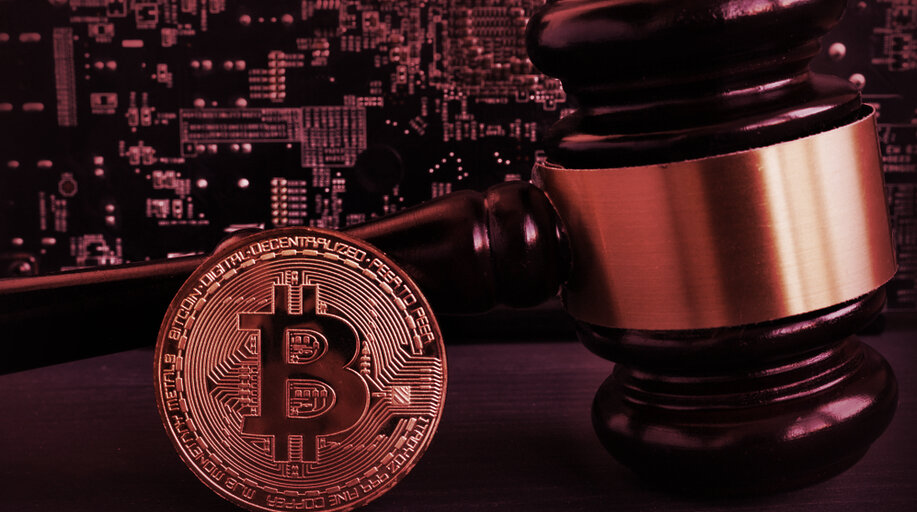FinCEN Rule Would Expose All Your BTC Transactions: EFF
4 min readProposed FinCEN rule changes that would require crypto companies to collect KYC information on customers’ cryptocurrency wallets could result in users’ entire BTC transaction histories being exposed, according to digital privacy non-profit the Electronic Frontier Foundation.
“If you know the name associated with a particular BTC address, you can glean information about all of their BTC transactions that use that address—not just their transactions over a certain dollar amount,” Marta Belcher, special counsel to the EFF, told Decrypt.
In December of last year, the US Financial Crimes Enforcement Network (FinCEN) proposed a regulation that would require crypto companies to collect the personal information of customers using self-hosted wallets.
The rule would require the relevant crypto firms to gather personal data on transactions that exceed $3,000. If a transaction exceeds $10,000, it would have to be reported to FinCEN.
According to FinCEN, the regulation is designed to combat the threat of illicit finance. But because the BTC blockchain is public, once one transaction is linked to a user’s identity, it can potentially expose every transaction they’ve previously made, or will make in the future.
“In my view, one of the most important things about cryptocurrency is that it imports the civil liberties benefits of cash into the digital sphere by allowing for anonymous transactions,” Belcher told Decrypt.
Crypto pushback against FinCEN
Ever since the rule was first proposed in December 2020, civil liberties groups and cryptocurrency businesses have criticized FinCEN for, at best, regulatory overreach, and at worst, overstepping the bounds of the US Constitution.
“The Fourth Amendment requires the government to get a warrant before conducting a search or seizure,” Belcher—who provided initial commentary to Decrypt when FinCEN first proposed the rule—said. “I don’t understand why we accept as normal that financial institutions turn over sensitive financial data to governments without a warrant. Our financial transactions provide an intimate window into our lives, and law enforcement should be required to get a warrant to obtain this data.”
“I do believe that FinCEN’s proposed regulations violate the Fourth Amendment, and I also believe that the Bank Secrecy Act as it is applied to financial surveillance in the traditional banking system is unconstitutional,” she added.
Other groups like the New Civil Liberties Alliance have criticized FinCEN for proposing to infringe on the privacy rights of cryptocurrency holders. What’s more, some of the biggest crypto companies in the world—including Coinbase and Square—have filed public comments in opposition to the FinCEN proposal.
But what about the other side of the argument? Is this regulation necessary, and if it comes into force, might it actually help the crypto industry grow?
The FinCEN perspective
FinCEN believes the proposal is necessary to combat illicit finance.
“FinCEN assesses that there are significant national security imperatives that necessitate an efficient process for proposal and implementation of this rule,” the regulatory authority said.
The regulator added that US authorities have found “malign actors” to be using convertible virtual currencies to facilitate international terrorist financing, weapons proliferation, sanctions evasion, money laundering, as well as trading controlled substances, fraudulent IDs, counterfeit goods, malware and weapons.
Based on recent studies—such as a December 2020 Chainalysis study that found darknet markets’ revenues were at an unprecedented high—FinCEN’s view is well-founded.
Cryptocurrencies are reportedly being increasingly used to finance white supremacist and neo-Nazi groups. Earlier this year, a French donor paid more than $500,000 in BTC to “far-right activists and Internet personalities.” Per WIRED, Steven Stalinksy, executive director of US-based terrorism threat monitor Middle East Media Research Institute (MEMRI), said that these groups are “following in the footsteps of jihadis.”
Jihadist groups like Hay’at Tahrir al-Sham have reportedly turned to cryptocurrencies including BTC to finance their operations in the past.
But it’s not just international security risks that justify FinCEN’s proposal for some. For others, it’s about affording legitimacy to a cryptocurrency market hoping to break into mainstream finance.
Raoul Pal, a former hedge fund manager who has described BTC as the “best reserve asset ever,” believes regulation is key to the institutional adoption of cryptocurrency.
“I’m going to explain this again – you might hate regulation of BTC, you might have a MASSIVE philosophical aversion to it, and that is fine, but they are going to regulate the fiat on ramps and off ramps and it will make you RICH, as institutions now be able adopt it,” Pal tweeted in November 2020.





![Decentraland: Review & Beginner's Guide [current_date format=Y] 19 Decentraland: Review & Beginner's Guide](https://cryptheory.org/wp-content/uploads/2020/11/decentraland-02-gID_7-300x150.jpg)